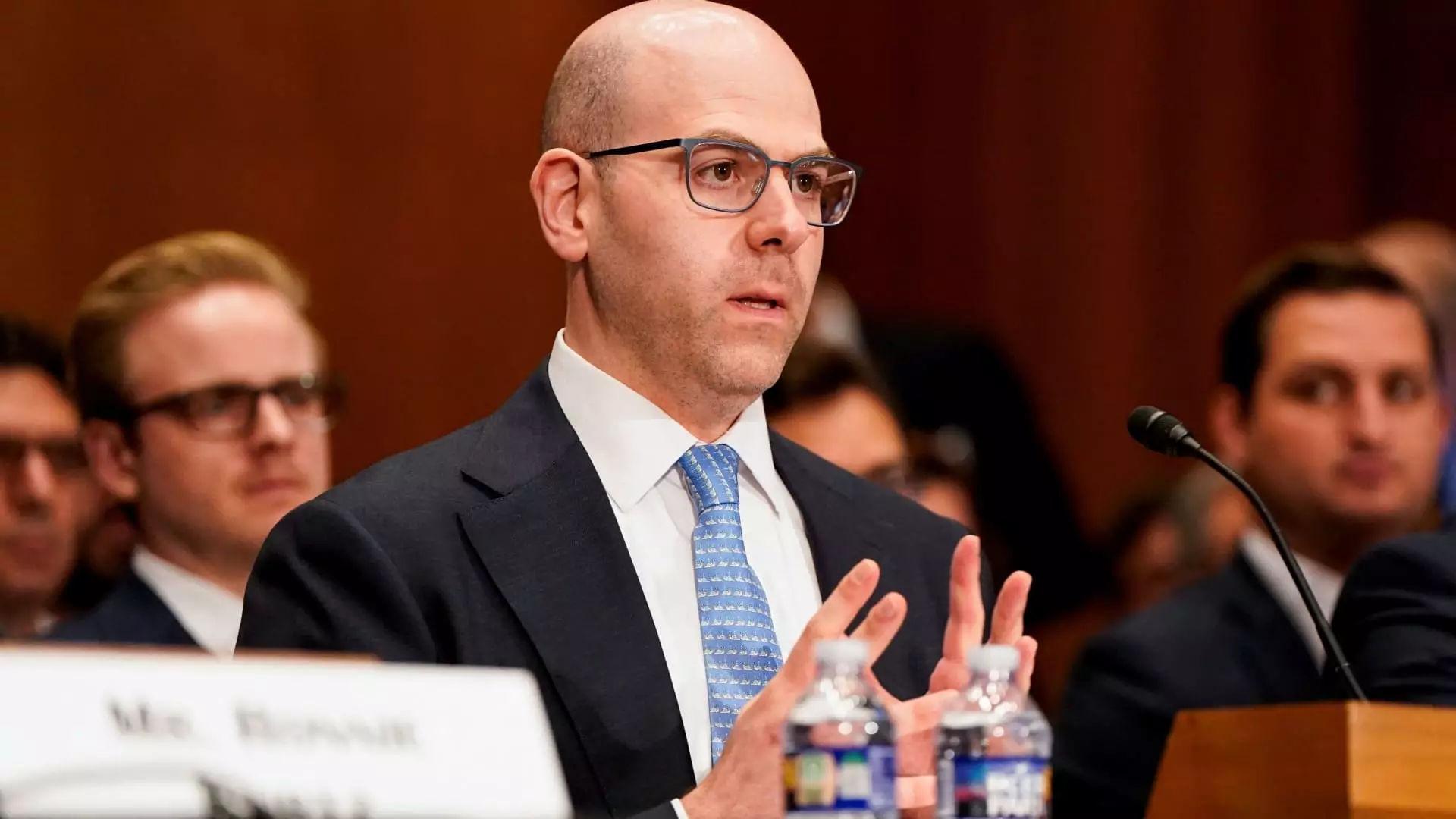In the world of central banking, the Federal Reserve has long been heralded as a bastion of independence—an insulated institution capable of making decisions loosely tethered to political influence in order to safeguard economic stability. Yet, recent events and insider revelations cast serious doubt on this perception. The case of Federal Reserve Governor Stephen Miran and his interactions during a tense political era exemplifies a troubling reality: the veneer of independence is more fragile than many would like to believe. When a central banker’s voting decisions seem to be influenced by political leaders or public pressure, the institution’s credibility begins to erode, and with it, the trust of markets and the populace.
Miran’s decision to oppose the Federal Reserve’s interest rate cut—a move he clearly made independently—nonetheless highlights how political signals are intertwined with monetary policymaking. The fact that the President publicly campaigns for aggressive rate reductions while the Fed’s own officials privately maintain a different stance calls into question whether the institution functions as an autonomous body or a political instrument. The so-called independence of the Fed appears, more often than not, as a carefully managed illusion, especially when political figures openly disparage or threaten the institution and its leaders.
Political Pressure: A Dangerous Catalyst for Eroding Trust
The Trump administration’s overt criticism and direct involvement in Fed affairs stand as a stark example of political encroachment. Calling Chair Jerome Powell “Too Late” and publicly seeking to influence who sits on the Fed’s governing board diminishes the central bank’s credibility and hampers its ability to make objective decisions. For the Fed to effectively manage inflation, employment, and financial stability, it needs to be perceived—both domestically and internationally—as operating independently from short-term political interests.
Miran’s statement that he had only minimal contact with the President—“congratulations, and that was it”—may sound reassuring on the surface, but it raises questions about not just the nature of that interaction, but also the environment of influence surrounding key decisions. When leaders like Miran openly acknowledge their independence yet operate within a system where political signals are receiving increased prominence, it undermines the institution’s legitimacy. This undermining is most dangerous because it risks politicizing monetary policy, which should be based on data and sound economics, not political expediency.
Implications for Market Stability and Long-Term Economic Health
The potential erosion of Fed independence has profound consequences. Investors and global markets rely heavily on the assumption that the Fed’s decisions are grounded in economic fundamentals rather than political pressures. When that trust is compromised, market volatility increases, and economic outcomes become less predictable. The confidence in the central bank’s ability to steer monetary policy without undue influence is crucial for maintaining stable financial conditions.
Moreover, the ongoing politicization threatens the institutional capacity of the Fed to implement long-term strategies. Short-term political gains—such as easing rates to boost election prospects—might be pursued at the cost of overall economic health. Such behavior leads to a dangerous precedent: monetary policy becomes a pawn in electoral battles, rather than a tool to ensure sustainable growth. This erosion of independence also fosters a dangerous cycle whereby future administrations may feel emboldened to exert even more overt pressure, further destabilizing the delicate balance that keeps inflation in check and the economy on stable footing.
A Center-Right Perspective: Defending the Core Principles of Monetary Sovereignty
From a center-right liberal perspective, the integrity of the Federal Reserve’s independence is fundamental to economic prudence. While some argue that political oversight is necessary to prevent economic elites from running amok, history shows that politicized monetary policy often results in inflation, bubbles, and financial crises. Maintaining a clear separation between politics and the central bank’s decisions serves as a safeguard against populist pressures that threaten sound economic management.
The recent controversies serve as a wake-up call: safeguarding the Fed’s autonomy is not merely a matter of tradition but a vital component of economic stability. It is imperative for policymakers, industry leaders, and the public to scrutinize and challenge any efforts to undermine the institution’s independence. Only then can we ensure that monetary policy remains a tool for stability and growth, rather than a weapon of political convenience.
The current climate underscores the necessity of asserting and defending the Fed’s independence. Without it, the very foundations of modern monetary policy risk being compromised, exposing the economy to volatility and short-sighted decision-making. Political pressures should be viewed with suspicion, not embraced as legitimate influences—because in the end, economic sovereignty must be defended against the corrosive effects of partisan interference.

